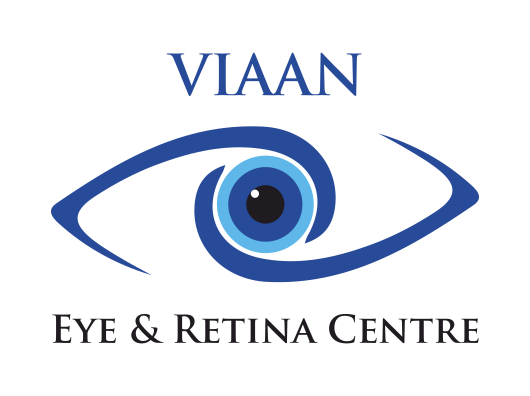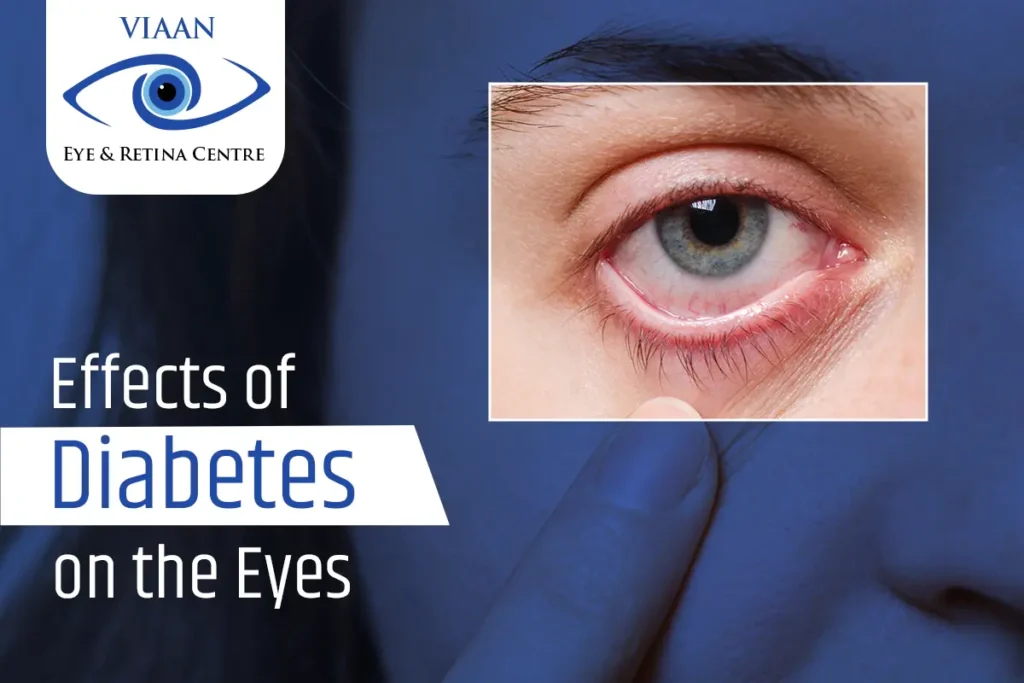Diabetes is a chronic condition that affects how your body regulates blood sugar. Uncontrolled blood sugar can have a significant impact on your overall health, including your vision. Diabetic eye disease is a leading cause of blindness in adults, and early detection and management are crucial for protecting your eyesight.
High Blood Sugar and its Effects
Chronically high blood sugar levels damage the delicate blood vessels throughout your body, including those in your eyes. These tiny vessels nourish the retina, the light-sensitive layer at the back of the eye responsible for converting light into signals your brain interprets as vision. When high blood sugar weakens these vessels, they can leak fluid or blood, causing blurry vision and other problems. In some cases, abnormal new blood vessels may grow on the retina, further threatening vision.
Diabetic Retinopathy- The Leading Threat
Diabetic retinopathy is the most common eye complication of diabetes and the leading cause of blindness in working-age adults. It often progresses through stages, with some people experiencing no symptoms in the early stages. Here’s a breakdown of the different stages:
- Background Retinopathy: This is the earliest stage, where tiny blood vessels in the retina leak fluid or blood. Symptoms may be absent, but a dilated eye exam can detect these changes.
- Macular Edema: When fluid accumulates in the macula, the central part of the retina responsible for sharp central vision, it can cause blurred vision, distorted vision, and difficulty seeing colors.
- Proliferative Diabetic Retinopathy (PDR): In this advanced stage, abnormal new blood vessels grow on the retina and the surface of the eye. These new vessels are fragile and can bleed into the vitreous, the gel-like substance that fills the eyeball. This can cause severe vision loss and even detachment of the retina, a sight-threatening complication.
Early Detection is Key To Prevent
The good news is that diabetic retinopathy is often treatable, especially when detected early. Regular dilated eye exams are vital for early detection. The American Diabetes Association recommends that people with diabetes get a comprehensive dilated eye exam at least once a year. More frequent exams may be needed depending on the severity of your diabetes and the presence of any eye problems.
Treatment Options for Diabetic Retinopathy
Several treatment options are available for diabetic retinopathy, depending on the stage and severity. These include:
- Laser surgery: This can be used to seal leaking blood vessels or shrink abnormal new blood vessels.
- Anti-VEGF injections: These medications injected into the eye help prevent the growth of abnormal blood vessels.
- Vitrectomy: This surgical procedure removes blood or scar tissue from the vitreous cavity to improve vision.
Beyond Retinopathy: Other Eye Problems and Diabetes
While diabetic retinopathy is the most concerning eye complication, diabetes can also increase your risk of other eye problems:
- Cataracts: Cataracts are a clouding of the lens of the eye, leading to blurry vision. People with diabetes are more likely to develop cataracts at a younger age and experience faster progression.
- Glaucoma: This group of eye diseases damages the optic nerve, the bundle of nerves that carries visual information to the brain. Diabetes can increase your risk of developing glaucoma, which can cause gradual vision loss.
Protecting Your Vision: A Multi-Pronged Approach
Managing your diabetes is the most important step in protecting your vision. Here are some key strategies:
- Maintain good blood sugar control: Working with your doctor to keep your blood sugar levels within your target range is essential.
- Regular eye exams: Don’t skip your annual dilated eye exams, even if you’re not experiencing any vision problems.
- Healthy lifestyle choices: Eating a healthy diet, exercising regularly, and maintaining a healthy weight can all contribute to better blood sugar control and overall health, including your eyes.
- Smoking cessation: Smoking significantly increases your risk of diabetic eye disease and other complications. Quitting smoking is one of the best things you can do for your overall health.
Living with Diabetes and Maintaining a Healthy Vision
If you have diabetes, it’s important to know that you can take steps to protect your vision and prevent eye problems. By managing your blood sugar levels effectively, scheduling regular eye exams, and adopting a healthy lifestyle, you can significantly reduce your risk of vision loss or other complications.
It’s recommended to discuss any concerns you have about your vision with an eye care specialist.
If you are facing any sort of eye problem, consult with Viaan Eye & Retina Center best retina specialist in Gurgaon, we have a team of experts who use cutting-edge technology to check the core of the disease and offer you the right solution. You can directly pay us a visit to our hospital or call us to book an appointment with us. Remember, early detection and management are crucial to preserving your eyesight.



